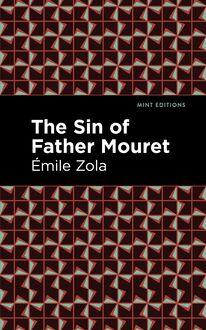-
 Univers
Univers
-
 Ebooks
Ebooks
-
 Livres audio
Livres audio
-
 Presse
Presse
-
 Podcasts
Podcasts
-
 BD
BD
-
 Documents
Documents
-
- Cours
- Révisions
- Ressources pédagogiques
- Sciences de l’éducation
- Manuels scolaires
- Langues
- Travaux de classe
- Annales de BEP
- Etudes supérieures
- Maternelle et primaire
- Fiches de lecture
- Orientation scolaire
- Méthodologie
- Corrigés de devoir
- Annales d’examens et concours
- Annales du bac
- Annales du brevet
- Rapports de stage
La lecture à portée de main
Vous pourrez modifier la taille du texte de cet ouvrage
Découvre YouScribe en t'inscrivant gratuitement
Je m'inscrisDécouvre YouScribe en t'inscrivant gratuitement
Je m'inscrisEn savoir plus
Vous pourrez modifier la taille du texte de cet ouvrage
En savoir plus

Description
After her mother’s death, a woman heads out on her own and is pulled into several history-making events including women’s suffrage and World War I. She’s driven by her wits and desire to create a better life for herself and others.
Joan Allway is a bright college-educated young woman. Following her mother’s sudden death, she moves to London to find work. She considers it a land of opportunity where she can start a career and fend for herself. On her journey to independence she’s sidetracked by many obstacles leading her down an unexpected path. Her passion about journalism, politics, and ethics will bring her to the frontlines of the Great War.
All Roads Lead to Calvary was published later in Jerome’s career but maintains his signature tone and style. He delivers a compelling heroine whose story helps shape the narrative of the past and present.
With an eye-catching new cover, and professionally typeset manuscript, this edition of All Roads Lead to Calvary is both modern and readable.
Sujets
Informations
| Publié par | Mint Editions |
| Date de parution | 09 mars 2021 |
| Nombre de lectures | 0 |
| EAN13 | 9781513279046 |
| Langue | English |
| Poids de l'ouvrage | 2 Mo |
Informations légales : prix de location à la page 0,0500€. Cette information est donnée uniquement à titre indicatif conformément à la législation en vigueur.
Extrait
All Roads Lead to Calvary
Jerome K. Jerome
All Roads Lead to Calvary was first published in 1919.
This edition published by Mint Editions 2021.
ISBN 9781513278582 | E-ISBN 9781513279046
Published by Mint Editions®
minteditionbooks .com
Publishing Director: Jennifer Newens
Design & Production: Rachel Lopez Metzger
Project Manager: Micaela Clark
Typesetting: Westchester Publishing Services
C ONTENTS I II III IV V VI VII VIII IX X XI XII XIII XIV XV XVI XVII XVIII
I
S he had not meant to stay for the service. The door had stood invitingly open, and a glimpse of the interior had suggested to her the idea that it would make good copy. “Old London Churches: Their Social and Historical Associations.” It would be easy to collect anecdotes of the famous people who had attended them. She might fix up a series for one of the religious papers. It promised quite exceptional material, this particular specimen, rich in tombs and monuments. There was character about it, a scent of bygone days. She pictured the vanished congregations in their powdered wigs and stiff brocades. How picturesque must have been the marriages that had taken place there, say in the reign of Queen Anne or of the early Georges. The church would have been ancient even then. With its air of faded grandeur, its sculptured recesses and dark niches, the tattered banners hanging from its roof, it must have made an admirable background. Perhaps an historical novel in the Thackeray vein? She could see her heroine walking up the aisle on the arm of her proud old soldier father. Later on, when her journalistic position was more established, she might think of it. It was still quite early. There would be nearly half an hour before the first worshippers would be likely to arrive: just time enough to jot down a few notes. If she did ever take to literature it would be the realistic school, she felt, that would appeal to her. The rest, too, would be pleasant after her long walk from Westminster. She would find a secluded seat in one of the high, stiff pews, and let the atmosphere of the place sink into her.
And then the pew-opener had stolen up unobserved, and had taken it so for granted that she would like to be shown round, and had seemed so pleased and eager, that she had not the heart to repel her. A curious little old party with a smooth, peach-like complexion and white soft hair that the fading twilight, stealing through the yellow glass, turned to gold. So that at first sight Joan took her for a child. The voice, too, was so absurdly childish—appealing, and yet confident. Not until they were crossing the aisle, where the clearer light streamed in through the open doors, did Joan see that she was very old and feeble, with about her figure that curious patient droop that comes to the work-worn. She proved to be most interesting and full of helpful information. Mary Stopperton was her name. She had lived in the neighbourhood all her life; had as a girl worked for the Leigh Hunts and had “assisted” Mrs. Carlyle. She had been very frightened of the great man himself, and had always hidden herself behind doors or squeezed herself into corners and stopped breathing whenever there had been any fear of meeting him upon the stairs. Until one day having darted into a cupboard to escape from him and drawn the door to after her, it turned out to be the cupboard in which Carlyle was used to keep his boots. So that there was quite a struggle between them; she holding grimly on to the door inside and Carlyle equally determined to open it and get his boots. It had ended in her exposure, with trembling knees and scarlet face, and Carlyle had addressed her as “woman,” and had insisted on knowing what she was doing there. And after that she had lost all terror of him. And he had even allowed her with a grim smile to enter occasionally the sacred study with her broom and pan. It had evidently made a lasting impression upon her, that privilege.
“They didn’t get on very well together, Mr. and Mrs. Carlyle?” Joan queried, scenting the opportunity of obtaining first-class evidence.
“There wasn’t much difference, so far as I could see, between them and most of us,” answered the little old lady. “You’re not married, dear,” she continued, glancing at Joan’s ungloved hand, “but people must have a deal of patience when they have to live with us for twenty-four hours a day. You see, little things we do and say without thinking, and little ways we have that we do not notice ourselves, may all the time be irritating to other people.”
“What about the other people irritating us?” suggested Joan.
“Yes, dear, and of course that can happen too,” agreed the little old lady.
“Did he, Carlyle, ever come to this church?” asked Joan.
Mary Stopperton was afraid he never had, in spite of its being so near. “And yet he was a dear good Christian—in his way,” Mary Stopperton felt sure.
“How do you mean ‘in his way’?” demanded Joan. It certainly, if Froude was to be trusted, could not have been the orthodox way.
“Well, you see, dear,” explained the little old lady, “he gave up things. He could have ridden in his carriage”—she was quoting, it seemed, the words of the Carlyles’ old servant—“if he’d written the sort of lies that people pay for being told, instead of throwing the truth at their head.”
“But even that would not make him a Christian,” argued Joan.
“It is part of it, dear, isn’t it?” insisted Mary Stopperton. “To suffer for one’s faith. I think Jesus must have liked him for that.”
They had commenced with the narrow strip of burial ground lying between the south side of the church and Cheyne Walk. And there the little pew-opener had showed her the grave of Anna, afterwards Mrs. Spragg. “Who long declining wedlock and aspiring above her sex fought under her brother with arms and manly attire in a flagship against the French.” As also of Mary Astell, her contemporary, who had written a spirited “Essay in Defence of the Fair Sex.” So there had been a Suffrage Movement as far back as in the days of Pope and Swift.
Returning to the interior, Joan had duly admired the Cheyne monument, but had been unable to disguise her amusement before the tomb of Mrs. Colvile, whom the sculptor had represented as a somewhat impatient lady, refusing to await the day of resurrection, but pushing through her coffin and starting for Heaven in her grave-clothes. Pausing in front of the Dacre monument, Joan wondered if the actor of that name, who had committed suicide in Australia, and whose London address she remembered had been Dacre House just round the corner, was descended from the family; thinking that, if so, it would give an up-to-date touch to the article. She had fully decided now to write it. But Mary Stopperton could not inform her. They had ended up in the chapel of Sir Thomas More. He, too, had “given up things,” including his head. Though Mary Stopperton, siding with Father Morris, was convinced he had now got it back, and that with the remainder of his bones it rested in the tomb before them.
There, the little pew-opener had left her, having to show the early-comers to their seats; and Joan had found an out-of-the-way pew from where she could command a view of the whole church. They were chiefly poor folk, the congregation; with here and there a sprinkling of faded gentility. They seemed in keeping with the place. The twilight faded and a snuffy old man shuffled round and lit the gas.
It was all so sweet and restful. Religion had never appealed to her before. The business-like service in the bare cold chapel where she had sat swinging her feet and yawning as a child had only repelled her. She could recall her father, aloof and awe-inspiring in his Sunday black, passing round the bag. Her mother, always veiled, sitting beside her, a thin, tall woman with passionate eyes and ever restless hands; the women mostly overdressed, and the sleek, prosperous men trying to look meek. At school and at Girton, chapel, which she had attended no oftener than she was obliged, had had about it the same atmosphere of chill compulsion. But here was poetry. She wondered if, after all, religion might not have its place in the world—in company with the other arts. It would be a pity for it to die out. There seemed nothing to take its place. All these lovely cathedrals, these dear little old churches, that for centuries had been the focus of men’s thoughts and aspirations. The harbour lights, illumining the troubled waters of their lives. What could be done with them? They could hardly be maintained out of the public funds as mere mementoes of the past. Besides, there were too many of them. The tax-payer would naturally grumble. As Town Halls, Assembly Rooms? The idea was unthinkable. It would be like a performance of Barnum’s Circus in the Coliseum at Rome. Yes, they would disappear. Though not, she was glad to think, in her time. In towns, the space would be required for other buildings. Here and there some gradually decaying specimen would be allowed to survive, taking its place with the feudal castles and walled cities of the Continent: the joy of the American tourist, the text-book of the antiquary. A pity! Yes, but then from the aesthetic point of view it was a pity that the groves of ancient Greece had ever been cut down and replanted with currant bushes, their altars scattered; that the stones of the temples of Isis should have come to be the shelter of the fisher of the Nile; and the corn wave in the wind above the buried shrines of Mexico. All these dead truths that from time to time had encumbered the living world. Each in its turn had had to be cleared away.
And yet was it altogether a dead truth: this passionate belief in a personal God who had ordered all things for the best: who could be appealed to for comfort, for help? Might it not be as good an explanation as any other of the mystery surrounding us? It had been so universal. She was not sure where, but somewhere
-
 Univers
Univers
-
 Ebooks
Ebooks
-
 Livres audio
Livres audio
-
 Presse
Presse
-
 Podcasts
Podcasts
-
 BD
BD
-
 Documents
Documents
-
Jeunesse
-
Littérature
-
Ressources professionnelles
-
Santé et bien-être
-
Savoirs
-
Education
-
Loisirs et hobbies
-
Art, musique et cinéma
-
Actualité et débat de société
-
Jeunesse
-
Littérature
-
Ressources professionnelles
-
Santé et bien-être
-
Savoirs
-
Education
-
Loisirs et hobbies
-
Art, musique et cinéma
-
Actualité et débat de société
-
Actualités
-
Lifestyle
-
Presse jeunesse
-
Presse professionnelle
-
Pratique
-
Presse sportive
-
Presse internationale
-
Culture & Médias
-
Action et Aventures
-
Science-fiction et Fantasy
-
Société
-
Jeunesse
-
Littérature
-
Ressources professionnelles
-
Santé et bien-être
-
Savoirs
-
Education
-
Loisirs et hobbies
-
Art, musique et cinéma
-
Actualité et débat de société
- Cours
- Révisions
- Ressources pédagogiques
- Sciences de l’éducation
- Manuels scolaires
- Langues
- Travaux de classe
- Annales de BEP
- Etudes supérieures
- Maternelle et primaire
- Fiches de lecture
- Orientation scolaire
- Méthodologie
- Corrigés de devoir
- Annales d’examens et concours
- Annales du bac
- Annales du brevet
- Rapports de stage
















